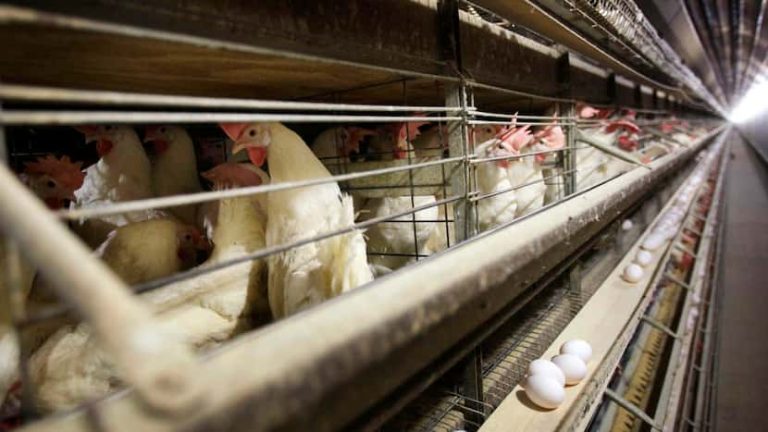Texas Agriculture Commissioner Sid Miller announced Tuesday that a poultry facility in Farwell has temporarily shut down operations after positive tests for avian influenza.
Cal-Maine Foods, an egg producer with locations across the U.S., including several facilities in Texas, is being asked by the USDA to “cull” 1.6 million layers and 337,000 pullets at its North Texas facility. As of early last month, the hens made up about 3.6% of the company’s flock.
“This is truly devastating news for California and Maine, and the entire Panhandle region, which have already suffered so much,” Miller said in a news release. “In light of this latest development, all producers must step up their biosecurity measures. The rapid spread of this virus means we must act fast.”
Tuesday’s news came a day after the Centers for Disease Control and Prevention confirmed that a Texas dairy worker tested positive for avian flu after coming into direct contact with cows. State and federal officials say this is the second human case of H5N1 influenza in the United States and the first linked to contact with cattle.
The U.S. Department of Agriculture has confirmed five new cases of avian flu on dairy farms across the country, with the disease detected on 11 dairy farms across four states — Texas, Kansas, Michigan and New Mexico — and a preliminary positive test result at a farm in Idaho.
Seven of the herds are in Texas, and the Texas Agriculture Department will continue to monitor the herds and provide guidance to producers and consumers, the statement said.
Miller said dairies are required to discard or divert milk from sick cows and must assure consumers that strict safety measures and pasteurization procedures ensure their dairy products are not affected by avian flu.
The CDC says the health risk to the general population remains low.
“Producers need to work with us and report cases immediately,” Miller said. “Transparency will be key to surviving and mitigating this outbreak, and we encourage producers to work with state and national authorities to report symptomatic animals as soon as they are identified.”
So far, consumer demand for dairy and beef does not appear to have been affected, but a recent report from Bloomberg News is raising concerns that this could be significantly affected if the outbreak becomes more widespread.

